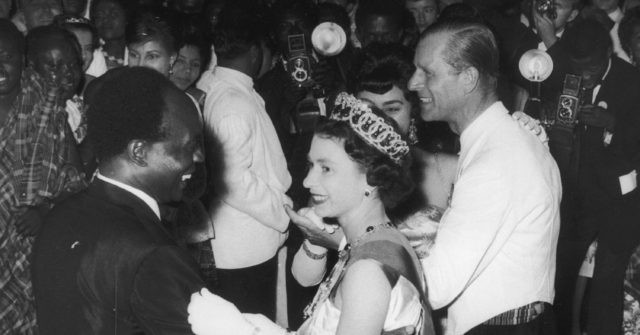

The passing of Queen Elizabeth II has evoked surprisingly powerful emotions in the United States, a country whose founding document is a repudiation of the British monarchy.
We American conservatives in particular seem to have a fondness for the Queen, despite our passionate attachment to the spirit of the Founding and its republican (small “r”) principles.
In June, I considered taking my eldest daughter to the Platinum Jubilee — before sending her, somewhat reluctantly, on a school field trip to the California legislature instead.
One reason conservatives like the Queen is a sentiment we share with all Americans: the Royal family is simply interesting.
As human beings, we relate to family stories. The drama of the Queen’s family — Edward’s abdication, Philip’s self-sacrifice, Charles’s divorce, Diana’s affair, Andrew’s perversion, Harry’s disloyalty, and William’s happily-ever-after — is tragic and glamorous. They are just like us — and so very different. Few can look away.
But conservatives in particular are drawn to the principles for which the Queen, and the monarchy as an institution, have stood: tradition, faith, order, and ritual.
The protocols that govern the lives of the Royal family are decorous, ornate, and perhaps burdensome, but they are a reminder of the quiet boundaries of propriety whose dissipation with each generation is a habitual conservative lament.
The monarchy also poses a unique problem for American conservatives, unlike conservatives elsewhere, where the very idea of conservatism has roots in the monarchist cause.
Indeed, it would be fair to ask whether conservative enthusiasm for the monarchy represents a kind of regret, a sense that independence has not turned out so well after all, or perhaps even a pining for a more authoritarian mode of government.
But that is not the case.
The Declaration of Independence was indeed aimed at King George III, but as Harvard scholar Eric Nelson has argued, the primary target of the American revolutionaries was Parliament (“no taxation without representation”), not the Crown.
Indeed, before choosing to break away from Britain, many Colonial leaders pleaded with the monarchy to remonstrate with Parliament on their behalf.
So in mourning the Queen, and admiring the monarchy, American conservatives are, in fact, showing continuity with the early sentiments of the Revolution, when the main grievance was the power of an all-powerful legislature. It was an imbalance the Framers sought to address in the delicate checks-and-balances of the Constitution.
The Framers also understood that self-government would fail without a virtuous citizenry — one guided by religious sentiment and motivated by a charitable spirit.
Elizabeth, who was also head of the Church of England, represented the kind of balance between the secular and the spiritual that America’s early leaders hoped citizens would emulate, even if church and state were formally separated in the government itself.
That is why conservatives loved the Queen: in her reign, she was a model of self-rule. She was dutiful, yet adventurous (who could forget that dance with Kwame Nkrumah?), powerful yet humble.
We loved the Queen; proud to be Americans, we nevertheless aspired to emulate her virtues.
Joel B. Pollak is Senior Editor-at-Large at Breitbart News and the host of Breitbart News Sunday on Sirius XM Patriot on Sunday evenings from 7 p.m. to 10 p.m. ET (4 p.m. to 7 p.m. PT). He is the author of the recent e-book, Neither Free nor Fair: The 2020 U.S. Presidential Election. His recent book, RED NOVEMBER, tells the story of the 2020 Democratic presidential primary from a conservative perspective. He is a winner of the 2018 Robert Novak Journalism Alumni Fellowship. Follow him on Twitter at @joelpollak.





